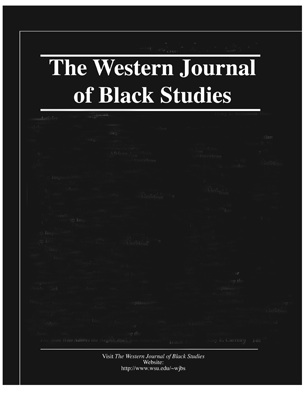Volume 35, Issue 2
Understanding Essentialism as Fundamental:
The Centered African Perspective on the Nature
of Prototypical Human Nature:
Cosmological Ka (Spirit)
Daudi Ajani ya Azibo—Independent Scholar
Anti-essentialism and social constructionist thinking prevail in Western discourse about human nature. Because the centered African view of the nature of prototypical human nature is that ontologically "spirit" is the life force, it is an essentialist position necessarily. This centered African view, which precedes and significantly differs from the essentialism notion in Western thought, is explicated. The explication serves two purposes: (1) as an example of opening up Western discourse on the nature of human nature to include the deep thinking of African civilizations and (2) to refresh African deep thinking on this issue. Anti-essentialism and social constructionist thinking are critiqued from this vantage.
Keywords: essentialism, social construction, spirit, Ka, African-centered psychology.
pp. 77-91
Institutions and Disciplinary Belief About Africana Studies
Fabio Rojas
—Indiana University
I examine the link between institutions and disciplinary beliefs held by Africana Studies professors. Three hypotheses are tested. First, a university's mission (e.g., research vs. teaching) will affect the belief that Africana Studies is a distinct field of study. Second, scholars are less likely to hold that belief if they have affiliations with other departments and disciplines that already address African or African American issues. Third, scholars are more likely to emphasize the distinctiveness of Africana Studies if they work in an academic unit that is threatened. These hypotheses are tested with data from a 2005 survey of Africana Studies professors. I find that professors are more likely to think that Africana Studies has its own methods if they are black, work in a non-research university, are appointed exclusively in their Africana Studies program, and work in a program that has low enrollments in the Africana Studies major.
pp. 92-105
"Go in de wilderness": Evading the "Eyes of Others" in the Slave Songs
Erik Nielson—University of Shefield, United Kingdom
This essay explores the trope of the wilderness in the slave spirituals, arguing that it functions to recreate symbolically the natural landscape into which slaves regularly took refuge in order to elude white surveillance. Drawing on a variety of sources, it considers the unique surveillance culture in the antebellum South, its effect on the everyday lives of the slaves, and the ways in which the slaves used their natural surroundings to avoid it. It then uses a close analysis of the song "Go in the Wilderness" as a point of departure for a broader discussion of the way the wilderness becomes central, both thematically and structurally, to the spirituals as a whole.
pp. 106–117
Racial Polarization in the 2008 U. S. Presidential Election
Steven Taylor—American University
In 2008 voters in the United States elected Barack Obama, a Democrat, as the nation's first African American President. Though Obama won by a decisive margin, there was very noticeable racial polarization in Americans' voting behavior. A sizable majority of Whites voted against Obama, while a near-unanimous majority of Blacks voted for him. Nevertheless, Obama fared better than any Democratic presidential candidate since 1964. This study shows that partisan affiliation, not race, is the driving force behind Americans' presidential choices. However, the parties' stands on racial issues have led many voters to identify with the Democratic or the Republican Party.
pp. 118-127
Surviving the Downturn: The Role of Social Capital in the Financial Crisis
Daniel Douglas—CUNY Graduate Center
Anthony Browne—Hunter College
Economic crises do not affect all groups similarly. As such, it is important to discern how the intersection of race, class and gender condition the experience and response of social groups to economic crises. Drawing on social capital theory, and utilizing data from a semi-quota sample of a major metropolitan city, this research explores the responses of different groups to the American economic downturn that began in 2007. This investigation found that certain respondents of color and those with fewer economic resources were more likely to either seek new or additional work, or reach out to friends and family, for cash or in-kind support.
pp. 128–138
The Influence of Cultural Identification, Religiosity, and
Self-Esteem on Alcohol Use Among African American, Hispanic,
and White Adolescents
Matthew J. Taylor—University of Missouri, St. Louis
Terrance L. Walker—Arizona State University
Chammie C. Austin—Maryville University
Candace A. Thoth—University of Texas-Southwestern
Desiree Z. Welch—Eastern Illinois University
This study examined the influence of cultural identification, religiosity, and self-esteem on alcohol use among a sample of African American, Hispanic, and White adolescents. Results indicated that cultural identification was negatively related to alcohol use among Whites, but not for African Americans or Hispanics. Religiosity was negatively related to alcohol use for Hispanics and Whites, but not African Americans. Self-esteem was not related to alcohol use for any of the groups. Finally, although cultural identification and religiosity did not consistently and directly impact alcohol use for all groups, results suggest that they did impact self-esteem.
pp. 139–156
Book Reviews
Before Brown: Heman Marion Sweatt, Thurgood Marshall,
and the Long Road to Justice
Author: Gary M. Lavergne
Reviewer: Jerome Teelucksingh
pp. 157–158
In the Public Eye (Autobiography)
Author: Joanne Kilgour Dowdy
Reviewer: Debra C. Smith
pp. 158–159
Slavery and Sentiment: The Politics of Feeling in
Black Atlantic Antislavery Writing, 1770–2008
Author: Christine Lececq
Reviewer: Jack Carson
pp. 159–161

| The WJBS site is normally maintained by Tanya Gonzales. Please feel free to e-mail comments, queries, and suggestions. |
Heading using the h3 tag
Lorem ipsum dolor sit amet, consectetur adipisicing elit, sed do eiusmod tempor incididunt ut labore et dolore magna aliqua. Ut enim ad minim veniam, quis nostrud exercitation ullamco laboris nisi ut aliquip ex ea commodo consequat. Duis aute irure dolor in reprehenderit in voluptate velit esse cillum dolore eu fugiat nulla pariatur. Excepteur sint occaecat cupidatat non proident, sunt in culpa qui officia deserunt mollit anim id est laborum.